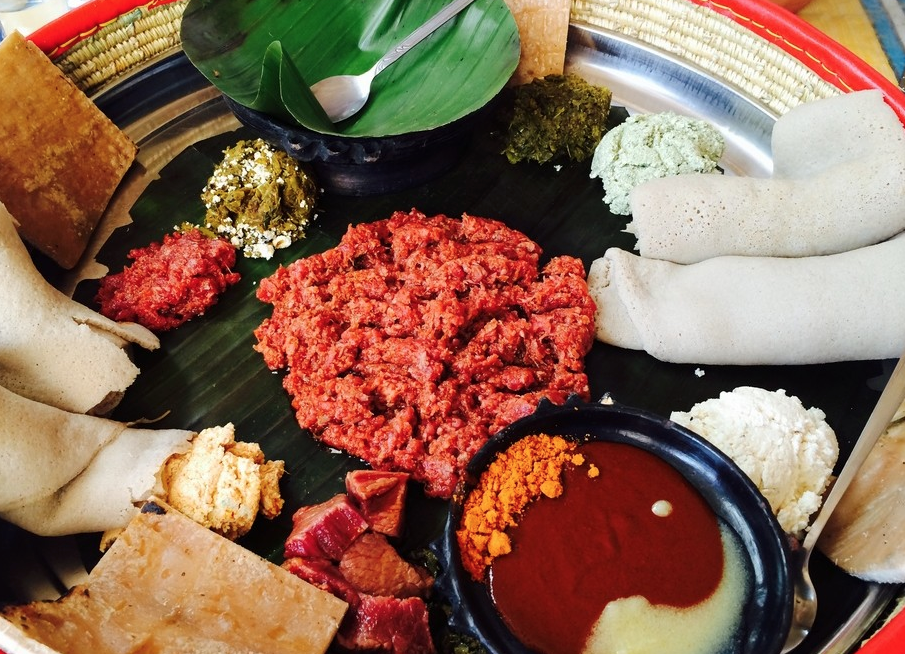
View From Arada | Aug 03,2019
Heineken Breweries, one of the largest producers of beer in the country, has spent 1.4 million Br to support 1,400 households encountering economic difficulties due to the Novel Coronavirus (COVID-19) pandemic in Addis Abeba, Harar and Bedele.
The support includes five litres of cooking oil, five kilograms of flour, five packages of pasta, and five kilograms of rice. The support packages cost the company 1,200 Br on average for each household.
Out of the total beneficiaries, 800 of them are in the capital, while the remaining 600 households are in Harar and Bedele. The company provided support to beneficiaries that were selected by the weredasand regional towns.
The government has also identified 30 million people as vulnerable groups requiring food support due to the spread of the virus. It approved a supplementary budget to provide food support for these vulnerable groups.
Five hundred of the beneficiaries of Heineken's giving are from Akaki Qality District living in the Qilinto area where one of the three Heineken plants is located. The Qilinto plant started operations in July 2014 and has an annual technical production capacity of three million hectolitres with more than 200 employees.
On June 3, 2020, the company handed over packages to 100 households, while the remaining 400 will be supplied with food items at the food bank that was established by the Addis Abeba City Administration.
The 500 beneficiaries were selected from the 10,000 people that were picked for food assistance, according to Belay Demissie, CEO of Wereda 09 of Akaki Qality District, which has set up 18 food banks.
Britu Bulbula, a 40-year-old mother of three, was one of the beneficiaries from Akaki Qality District. Britu's leg was hurt while she was working at a factory.
"The support is very vital for my family and me since I don't work due to my leg injury," she said.
Heineken distributed food items for 100 residents in the Abinet area of Ledeta District, which is currently under a partial lockdown due to the higher number of confirmed COVID-19 cases. As of Friday, May 5, 2020, a total of 191 cases were reported in Lideta District, the third-highest number of cases in a single area after Gulele and Addis Ketema, which has 392 cases.
Two weeks ago, the company handed out 60,000 surgical masks, 9,000 bottles of sanitiser, and food items to residents in Ledeta District in the capital, as well as in Jimma, Gambella, Arbaminch, Jinka and Kombolcha. The donations total 1.9 million Br, 1.8 million of which came from the coffers of Heineken, while its distributors in these towns covered the remainder.
In addition, the company invested 550,000 Br to set up hand-washing stations in areas with high amounts of traffic, including Merkato, Asko, Akaki and Megenagna. It also distributed 50,000 packages of soap in the capital, Bedele and Harar. The company also donated three million Birr to the Addis Abeba City Administration at the end of March.
Access, availability, consumption and sustainability are the four major pillars of food security, according to Messay Mulugeta (PhD), an associate professor of socioeconomic development, food security & environmental studies at Addis Abeba University.
Heineken's support will address the first three pillars of food security, which are essential to the beneficiaries, according to Messay.
"But it doesn't ensure the sustainability of food security," he said.
The country needs to have strong foundations to assure the sustainability of food security, Messay recommended.
PUBLISHED ON
Jun 07,2020 [ VOL
21 , NO
1050]

View From Arada | Aug 03,2019

Radar | Jul 20,2019

Commentaries | Aug 12,2023

Radar | Mar 23,2024

Viewpoints | Jan 07,2023

Radar | Jul 02,2022

Commentaries | Jan 26,2019

Radar | Feb 22,2020

Fortune News | Oct 18,2025

Radar | Jul 23,2022

Dec 22 , 2024 . By TIZITA SHEWAFERAW
Charged with transforming colossal state-owned enterprises into modern and competitiv...

Aug 18 , 2024 . By AKSAH ITALO
Although predictable Yonas Zerihun's job in the ride-hailing service is not immune to...

Jul 28 , 2024 . By TIZITA SHEWAFERAW
Unhabitual, perhaps too many, Samuel Gebreyohannes, 38, used to occasionally enjoy a couple of beers at breakfast. However, he recently swit...

Jul 13 , 2024 . By AKSAH ITALO
Investors who rely on tractors, trucks, and field vehicles for commuting, transporting commodities, and f...

Oct 18 , 2025
The political establishment, notably the ruling party and its top brass, has become p...

Oct 11 , 2025
Ladislas Farago, a roving Associated Press (AP) correspondent, arrived in Ethiopia in...

Oct 4 , 2025
Eyob Tekalegn (PhD) had been in the Governor's chair for only weeks when, on Septembe...

Sep 27 , 2025
Four years into an experiment with “shock therapy” in education, the national moo...